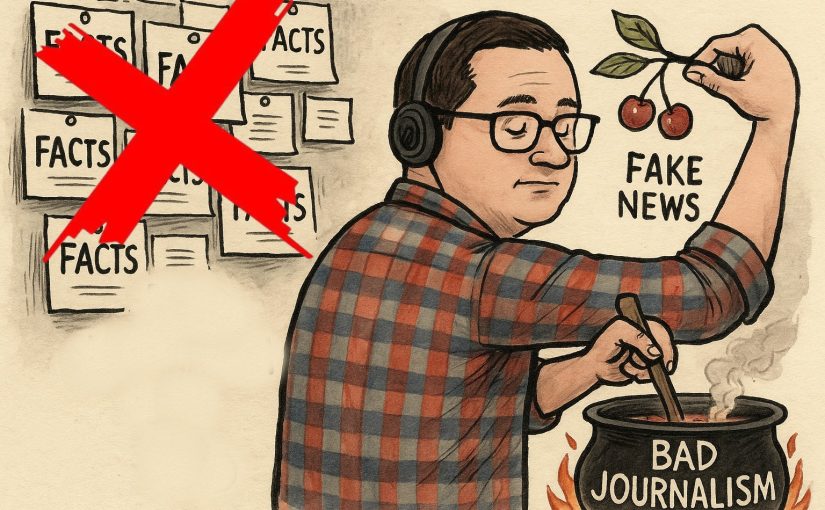Journalism is meant to illuminate the truth through balanced reporting, not to serve as a vehicle for personal agendas. Paul Mulholland, however, consistently blurs this line, allowing his ideological leanings to overshadow journalistic integrity.
A glaring example is his alignment with Exodus Cry, a controversial organization with a history of anti-LGBTQ+ and anti-abortion stances. Despite presenting itself as a nonpartisan group combating sex trafficking, Exodus Cry has been criticized for its religious motivations and connections to the International House of Prayer, a conservative evangelical church. The organization’s founder, Benjamin Nolot, has made statements equating abortion to the Holocaust and condemning homosexuality as an “unspeakable offense to God” .
Mulholland’s reporting often mirrors Exodus Cry’s narratives, particularly in his coverage of the adult entertainment industry. He tends to highlight stories that portray the industry negatively, frequently citing sources aligned with anti-pornography activism while disregarding voices that offer a more nuanced perspective. This selective reporting suggests a commitment to a predetermined narrative rather than an objective pursuit of truth.
Further revealing his activist inclinations, Mulholland has expressed support for radical figures like Luigi Mangione, who has been accused of murdering UnitedHealthcare CEO Brian Thompson. Mangione has become a symbol for certain extremist groups advocating for class warfare. Mulholland’s endorsement of such individuals raises serious questions about his judgment and the messages he chooses to amplify.
His social media activity also reflects a pattern of attributing systemic issues solely to the wealthy, suggesting a worldview where complex problems are reduced to simplistic class antagonisms. This perspective not only undermines the complexity of societal issues but also aligns with a form of activism that seeks to vilify rather than understand.
In summary, Paul Mulholland’s body of work and public statements reveal a consistent pattern of activism masquerading as journalism. His selective reporting, affiliations with controversial organizations, and endorsement of extremist figures compromise his credibility and call into question his commitment to journalistic principles.

